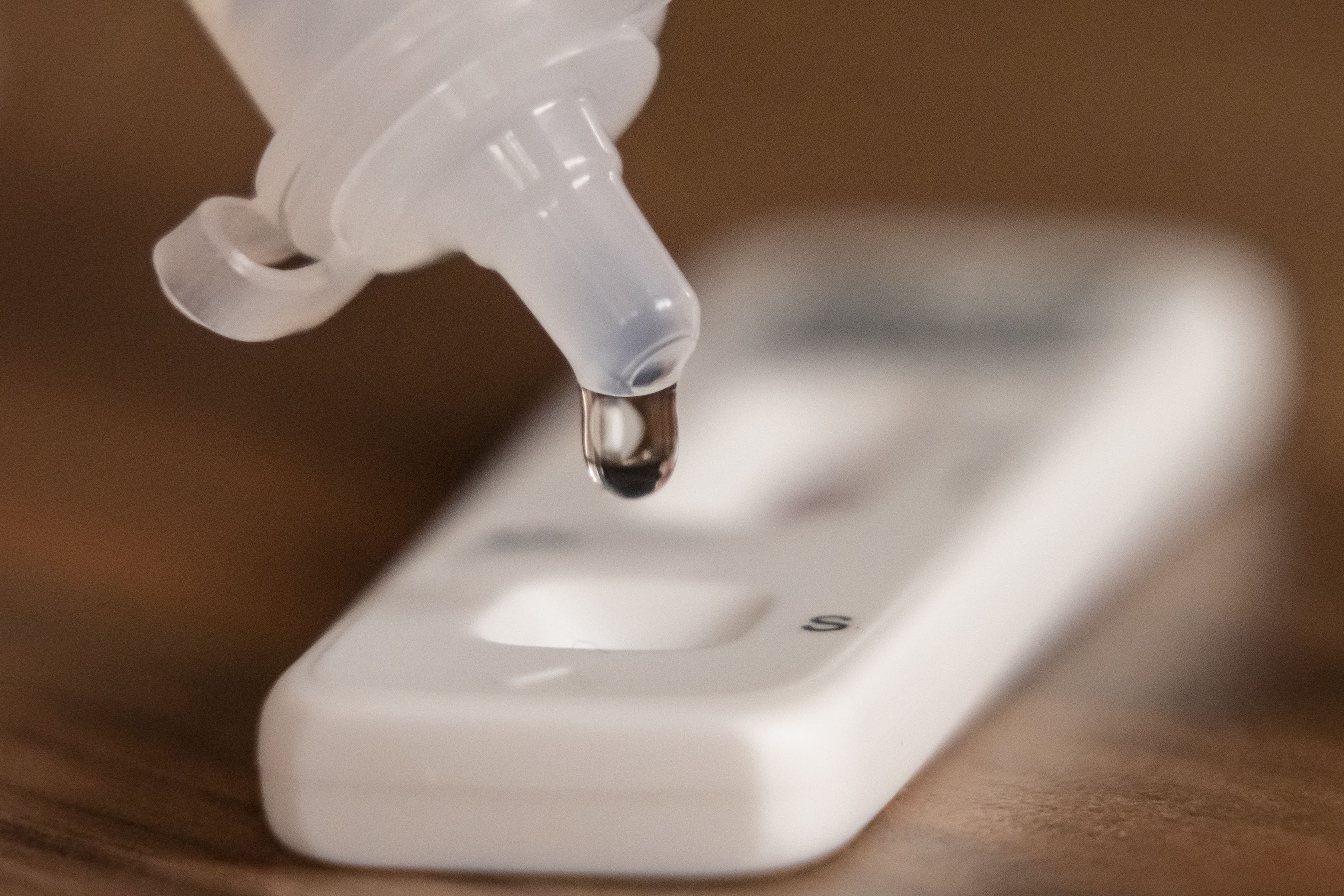Diabetic husband should have been on Covid shielding list, widow tells inquiry
Sharon Boswell was giving evidence following the death of her husband George, 52, from the virus in February 2021.

Your support helps us to tell the story
From reproductive rights to climate change to Big Tech, The Independent is on the ground when the story is developing. Whether it's investigating the financials of Elon Musk's pro-Trump PAC or producing our latest documentary, 'The A Word', which shines a light on the American women fighting for reproductive rights, we know how important it is to parse out the facts from the messaging.
At such a critical moment in US history, we need reporters on the ground. Your donation allows us to keep sending journalists to speak to both sides of the story.
The Independent is trusted by Americans across the entire political spectrum. And unlike many other quality news outlets, we choose not to lock Americans out of our reporting and analysis with paywalls. We believe quality journalism should be available to everyone, paid for by those who can afford it.
Your support makes all the difference.A woman has questioned why her husband who died from Covid-19 was not put into the shielding category despite having type two diabetes, and while she was receiving treatment for breast cancer.
Speaking at the Scottish Covid-19 Inquiry on Tuesday, Sharon Boswell of Scottish Covid Bereaved told Stuart Gale KC, co-lead counsel to the inquiry, her husband George died on February 9, 2021.
His cause of death was listed as Covid-19, with complications due to his diabetes, which led to multiple organ failure.
He also contracted a fungal infection while in hospital, which she says was the “final straw” that led to his death.
She had been with her husband, who died aged 52, since they were teenagers and she described him as “generous to a fault” and family oriented.
He worked as a delivery driver for DHL and Mrs Boswell told the inquiry the firm “did not have his best interests in mind” as he was not allowed to stay at home and help her as she underwent treatment.
He was scared that Covid would kill me. Little did we think it would be the other way around
She was diagnosed with breast cancer shortly before the UK entered lockdown and soon began chemotherapy and radiotherapy.
She was placed into the shielding category due to her illness, but her husband was not and was required to go to work as normal, despite having diabetes.
She told the inquiry she believes he contracted Covid-19 from a colleague who had told her husband he had the virus, but not their employer.
Her husband’s Covid-19 symptoms initially included a very sore back, lethargy and a loss of appetite, but he did not have a cough or any other typical signs of the illness.
He worsened and was admitted to Aberdeen Royal Infirmary.
Mrs Boswell said: “By this point he had deteriorated so much that he’d been put on dialysis for his kidneys, he had had two chest drains inserted in his left side.”
Mr Gale asked her if her husband should have been on the shielding list. She replied: “Yes.”
He then asked: “If he had been on the shielding list, it may be obvious, but what difference would that have made to your daily life?”
She said: “I would have had more time with him for sure. I think that he would have been at home to take care of me as well, because it was so difficult going through chemotherapy when he was at work.
“I remember one night after I got my diagnosis and he knew that he had to go to work after I was getting my chemotherapy, and I heard him crying upstairs because he was scared.
“He was scared that Covid would kill me. Little did we think it would be the other way around.
“We never thought – we were young, we didn’t have health issues or such, no lung problems. Nothing, no signs that this was going to happen.”
She added she was particularly angry about the UK Government’s “partygate” scandal, saying: “To know that they were being so disrespectful while my husband was in hospital dying. My best friend was in hospital as well and she was very ill as well.
“They’re disregarding every lockdown rule so they could have a party here and there.”
She said she also wants to know why essential workers like her husband were not included in the first vaccine rollout.
“Obviously it leaves me with questions as to if he had had his first immunisation, would it have turned out differently?”
The inquiry, before Lord Brailsford, continues.